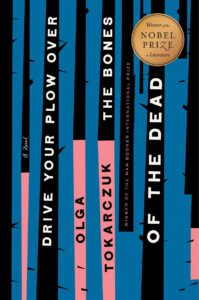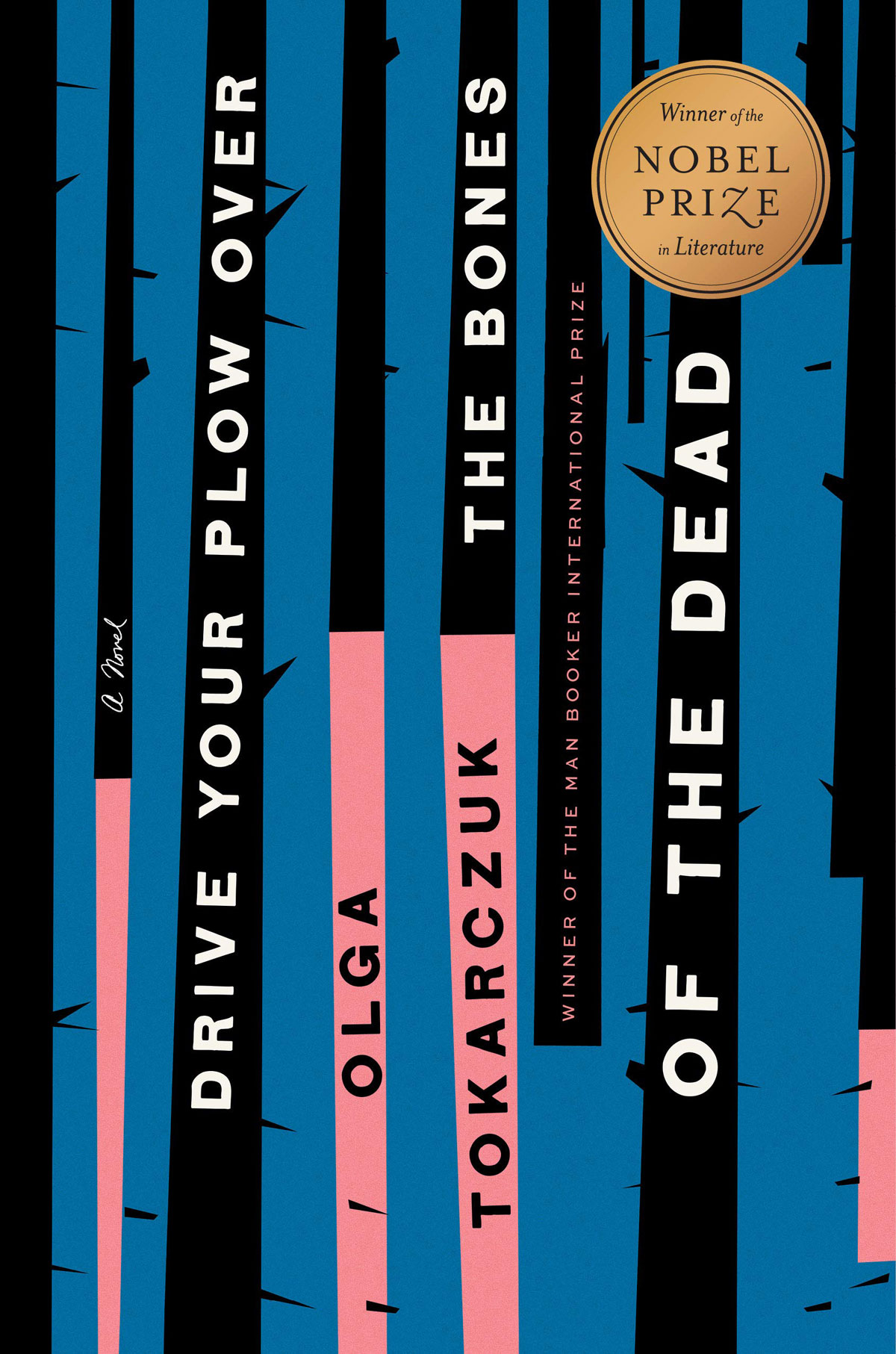
Author: Olga Tokarczuk
Publication Year: 2009
Length: 318 pages
It’s been a good while since I’ve done a book review. I wouldn’t say my interest or love of books has waned. It’s just my life and habits have changed in this, the time of COVID. Back in the times of yesteryear, I read like a maniac. I read on busses, on trains, in parks, on my bed. Sometimes my eyes would droop and head would nod incessantly a couple paragraphs in, but I tried. And then podcasts came along and kind of cut into my reading. It was much easier to sit back on the train and close my weary eyes than keep them trained on the written word. But I continued to try. That is, until my commute disappeared all together. Working from home, it turns out, is not conducive to reading multiples of books. There’s too much television. Too much housework. Too many distractions. Too much life when you’re not held captive in a moving metal tube for a couple hours a day.
So, amongst the now 45 or so books I have sitting in my Kindle queue, I chose to read this, Drive Your Plow Over the Bones of the Dead. A book originally written in Polish that sounds like an emo song title from the early 2000s, or an album title from Austin prog-emo band, …And You Will Know Us by the Trail of Dead. I figured if the Nobel Prize people felt passionate enough about it to give it one of their coveted awards, then it should be just fine for me. It turns out that my methodology for adding to my library was targeted and spread out over enough time that I ended up with this novel, as well as another by author, Olga Tokarczuk, in my queue without even realizing it. I’ve apparently become a non-reader. Which I’ve vowed in 2022 to overcome. Despite continuing to commute about 10 feet to my home office every day.
I have to say that this must be the first Polish novel I’ve ever read. At least the first and only one I can recall. Not that translated novels are even that noticeable if they’re done properly, but there can definitely be a feel (for lack of a better word) that you get from a country’s authors. I’m imagining some of the Indian authors I’ve read, and the kind of bittersweet nature of their tales. A humor that mixes with what to us privileged Americans seems like the most horrific of circumstances. Polish, though, I wasn’t quite certain what to expect. Other than I understood the novel to have some sort of murder mystery angle built in. Of course the Nobel people generally don’t give their top prize to genre fiction, so I had to also assume that the murder mystery was couched in what had to be literary trappings.
This becomes super-obvious when we’re told that the novel’s protagonist, Janina Duszejko, works on translating William Blake poems into Polish. First, I know not the first thing about William Blake. My understanding is he was a poet and painter. In fact, the title of this novel is taken from one of his poems. Pretty heady stuff and just the kind of thing a writer of literary fiction would have one of her characters be involved with. Janina is also a school teacher who teaches English, a caretaker in winter of people’s summer vacation homes and an amateur astrologer. And also a convener with nature — almost an activist, I guess you could say. She is the narrator and is at the center of the entirety of the book. She is a self-described and oft described by others as a batty old lady. My words, not theirs. But that seems to be the consensus. She’s one of those older folks whose filter has left them, or their care about saying the right thing, at least. She just kind of spouts off about whatever to whomever, has a lot of opinions and generally shares them with whomever she can.
One day, she discovers the body of one of the nearby residents in his cabin. She has nicknames for everyone, and calls the dead guy “Big Foot.” Her companion in this discovery is a friend, nicknamed Oddball. There’s also a Dizzy, a Good News and a few others. I’m terrible at names, and I’m especially bad when the names are nonsensical. So I did find myself getting confused, even though there’s a pretty small smattering of characters. Next, a cop who is investigating the death of Big Foot ends up dead. And then another dude. And then another. Janina reads the stars and whatnot, as well as speculating about vengeful animals, and decides that guys are being murdered by angry deer. Needless to say, the police are unimpressed with her theory.
Frankly, not a lot happens in the novel. We get to hear Janina talk about her ailments and get blown off over and over around her ideas, discounted as a kook and a crank. She gets into some philosophical monologues that I think revolve around William Blake, but I’m not sure. And she complains and harps on weird stuff. Mostly we just get to watch a relatively lonely old lady go through the motions of her days. I’m not certain what the big deal is here, honestly. I mean, the writing is very nice at times, and the characters are quirky enough to be literary-novel-worthy weird. But overall, I wasn’t transfixed by the narrative in any significant way.
I think maybe people like it because of the twist. It’s like how people rave about a football game that’s 58 minutes of punts and the occasional field goal, but ends in a frenzy of crazy completed passes and desperation heaves. The recency bias of excitement seems to overrule the ho-hum of everything that came prior. Like if you were to take apart this novel, leaving out the ending, and ask people what happened for the first 300 pages, I think they’d have a hard time filling in anything between the murders. Which weren’t, in and of themselves, that engaging. Plus, if I’m being honest, I kind of saw the twist coming anyway. So when it happened, it didn’t even register as a shock or a twist to me anyway. You know, because I’m just such a perceptive reader. Which I most definitely am not.
I’m hoping that as I try to make my New Year’s resolution a reality, that I can engage with novels in a more consitent fashion. I think spreading the reading of this one over such a stretch of time definitely hurt the experience. But I suppose I’ll never know, since I don’t own a time machine or a shoulda-coulda mechanism of any kind. I do still have that other Tokarczuk book to read, so perhaps that one will grab me a little more than this one. Not that this wasn’t a fine novel, but I just must have missed some of the subtlety that everyone — including the Nobel people — seemed to catch.


